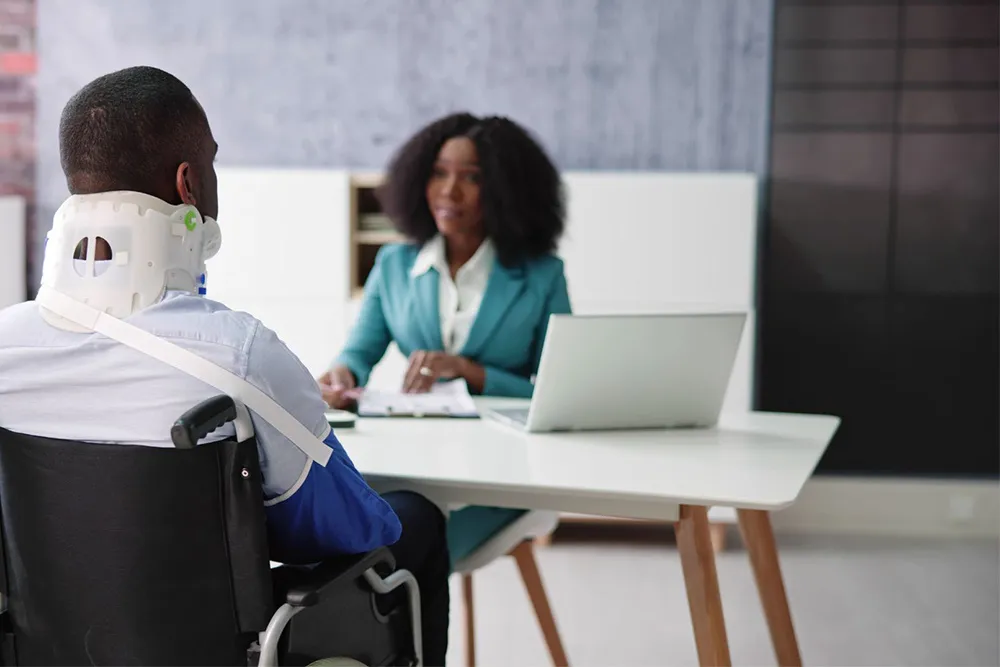If you have suffered a personal injury due to someone else’s negligence, and have been awarded a personal injury settlement, it’s natural to feel relieved and secure knowing that your financial burdens can be taken care of. But, the truth is that there are certain circumstances like tax implications, child support, liens from creditors, or challenges from the defendant or insurance company that could put the security of your settlement at risk. In this comprehensive guide, we’ll explore topics like, whether can child support take my personal injury settlement in Florida, and are personal injury settlements taxable in Florida, as well as, discuss the various factors that can impact the safety of your personal injury settlement.
3 Factor Categories That Influence Your Settlement’s Total Value
When looking at what factors can influence the total value of your personal injury settlement, it’s important to understand that the individual details of your case play a significant role in the amount you end up receiving. In Florida, this value can be impacted by the following factors:
1. The Weight That The Injury Has Had On The Individual
- How Severe Your Injury Is. The severity of your injury plays a significant role in determining the value of your personal injury settlement. Generally, more severe injuries such as spinal cord trauma, traumatic brain injuries, broken and dislocated bones, amputations, and other catastrophic injuries will result in larger settlements than injuries like severe bruising or sprains and strains.
- How Dramatically The Injury Has Impacted Your Life. When evaluating the worth of a personal injury settlement, the impact of injuries that drastically impede your daily routine, work, and your ability to provide for your loved ones, are duly considered.
- What Your Treatment & Recovery Road Looks Like. When a victim has to undergo significant post-injury treatment, such as hospitalization, extensive physical therapy and rehabilitation, and continuing follow-up medical visits, the settlement amount tends to be larger. Additionally, the duration of a victim’s recovery plays a role in the settlement they receive. As a rule of thumb, medical care and other expenses tend to increase as the duration of recovery extends.
- If There is Pain and Suffering Involved From Psychological Trauma. In some cases, the pain and suffering resulting from accidents go beyond physical injuries. Injury victims may experience emotional and psychological trauma, such as anxiety, fear, depression, and even post-traumatic stress disorder (PTSD). If it can be shown that the victim has sustained significant emotional and psychological trauma due to their injuries, this could significantly impact their overall settlement.
- The Degree of Liability. The certainty of liability in a personal injury claim has an impact on the settlement amount. If it is evident that the negligent party is 100% responsible for the injury, this will typically result in a higher settlement amount for the victim. However, if the injury victim shares liability for the incident, the total amount of compensation they receive may be reduced based on their percentage of fault.
2. Can Child Support Take My Personal Injury Settlement in Florida? What You Need to Know About Personal Injury Settlements & Child Support Obligations
Child support laws in the U.S. require both parents to contribute financially to their children’s well-being. However, if you are a noncustodial parent who has fallen behind on your payments, you may face a lien or arrears on your child support obligation. In Florida, this means that the court may seize some or all of your personal injury settlement to pay off your debt and fulfill your legal duty to your children. So, the answer to Can child support take my personal injury settlement in Florida is yes.
What Is The Difference Between a Child Support Lien and Arrears?
Just like your wages, your personal injury settlement can also be garnished if you fail to keep up with your child support payments. To understand how and why your personal injury compensation might be used to satisfy your child support obligations, you must know how missed or overdue payments are collected.
- If there is a child support order in place that has at least one missed payment for it, then you have what is called child support arrears. Florida’s Department of Revenue states that a portion of your personal injury settlement may be used to pay off any unpaid child support orders. This means that if you have an overdue payment at the time of a personal injury settlement being awarded to you, then the court can garnish a portion of it and direct it to the child support agency.
- Another way that your personal injury settlement can be affected by child support payments is if a child support lien has been put on your assets, property, or personal injury settlement. Child support liens are a separate legal instrument that can be used when your arrears reach a certain amount. The child support lien remains in effect until you have paid off the total amount of back child support payments, plus any interest and penalties that may have been assessed.
In some cases, you may be able to negotiate a payment plan or settlement with the court or child support enforcement agency to pay off your outstanding balance. However, it’s important to understand that any payments made towards the lien will reduce the amount you receive from your personal injury settlement. Therefore, it is important to fully understand the details of any payment plan, and how it may affect your settlement before agreeing to it, as it may not be the best course of action for you.
It’s also important to keep in mind that failure to pay your child support can result in serious consequences, such as wage garnishment, suspension of driver or professional licenses, as well as potential fines or even imprisonment. If you are currently behind on your child support obligations, get in touch with us before negotiating your personal injury settlement, as we can provide you with advice and assistance in getting the most favorable outcome for yourself while still fulfilling your duties as a parent.
3. Taxes and Personal Injury Settlements
Another significant factor to consider with an awarded personal injury settlement is whether you’ll be required to pay taxes on what is owed to you. Are personal injury settlements taxable in Florida? The answer depends on what the settlement is for. For example, if the settlement is for medical expenses that you’ve paid out of pocket, those funds are not taxable, but if even a portion of the settlement is for lost wage compensation, then income tax may be applicable. Here is a run-down of what you need to know about taxes and personal injury settlements.
- Medical Bills. In Florida, medical bills that you have paid out of pocket are non-taxable. This means that if the personal injury settlement is to cover your medical expenses, then you will not be required to pay taxes on the funds. This includes all medical bills for things like physical therapy, emergency care, and follow-up visits that address physical injuries or illnesses related to your personal injury claim.
- Pain and Suffering. If your personal injury settlement contains compensation for pain and suffering, then you will not be required to pay taxes on it. This is because the IRS does not consider this to be income; instead, they view it as compensatory damages that cover your physical and mental suffering caused by the injury.
- Emotional Distress. In most cases, emotional distress compensation is also not taxable. This includes money awarded for severe mental anguish, humiliation, or other forms of psychological trauma caused by the injury or incident. You shouldn’t have to pay if your injuries directly cause emotional distress.
- Lost Wages. If you’re awarded lost wages as part of your personal injury settlement, the Federal Government views this as income and thus, is taxable.
- Punitive Damages. In some cases, you may receive punitive damages in addition to compensatory damages. These are typically awarded when the defendant’s actions were especially egregious or malicious. The IRS considers punitive damage payments as taxable income, and you will be required to pay taxes on this portion of your personal injury settlement.
- Other Taxable Damages. Other types of damages that may be taxable, include any interest you receive with your settlement, wrongful termination, invasion of privacy, discrimination, and defamation.
As you can see, depending on what damages are awarded to you in your personal injury settlement, some of the compensation may be taxable in Florida.
How to Protect Your Personal Injury Settlement
When drafting your settlement, there are measures you can take to reduce your tax obligations and shield it from being claimed for child support or other purposes. Ensure that your settlement clearly states what the funds are compensating you for, and sufficiently support these compensation categories with evidence from your case.
Planning for Tax Obligations
Because personal injury settlements may be taxable in Florida, it is essential to make a plan to pay the taxes that you could owe on your injury settlement. You have the option of sending the estimated amount to the IRS straight away or putting the money into a separate account. Whatever you decide, it is crucial to have a plan for your tax obligation to avoid any unexpected bills.
Working with an Experienced Personal Injury Attorney
When dealing with a personal injury case, it is vital to work with an experienced personal injury attorney. They can help you seek the maximum compensation available, draft your settlement to minimize tax liabilities and protect you from losing your settlement money to other obligations. If you haven’t yet found the right attorney for your case; Personal Injury of Florida provides experienced legal representation and advocacy for people who have suffered physical, emotional, or financial harm due to another’s negligence. Our attorneys are committed to pursuing a fair and just outcome in your case. With years of experience and expertise in personal injury litigation, we will work diligently to ensure that you receive the compensation you deserve for any losses associated with your injury. Contact us today for a free case evaluation by calling our 24/7 line at 561-507-5700.
![]() November 19, 2023
November 19, 2023




